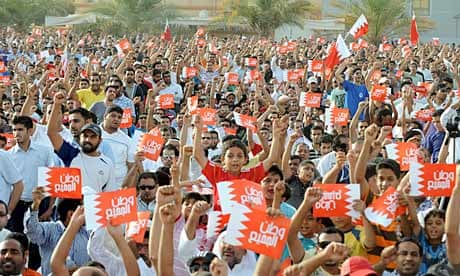If the Bahraini government succeeds in bring a libel action against the Independent to court, it would be going against the well-established principle that governments cannot sue for libel.
This was decided by the House of Lords in the case of Derbyshire county council v Times newspapers in 1993. The Sunday Times had carried two articles questioning the propriety of investments for the council's superannuation fund. The authority sued for libel for the damage done to its reputation. The action had been struck out by lower courts and the council took it to appeal.
Dismissing the appeal, the Lords said:
"It was of the highest public importance that a democratically elected governmental body should be open to uninhibited public criticism, and since the threat of civil actions for defamation would place an undesirable fetter on the freedom to express such criticism, it would be contrary to the public interest for institutions of central or local government to have any right at common law to maintain an action for damages for defamation."
Since that time the organs of local and central government have been unable to sue for libel as a legal entity themselves, and such actions would be struck out.
However, a note of caution: the judgment refers to the "democratically elected" local and central government of the UK. It does not expressly include the unelected governments of other countries. Whether the high court would take a different view of the unelected government of Bahrain as a claimant than it would a local authority here is not set out.
It would set a curious precedent, though, for the courts here to say that our own elected governments should expect robust media criticism, but unelected dictators and despots can rely on the full protection of our libel laws.
The other way in which an action might proceed against the Independent is the way that has bypassed the Derbyshire judgment since 1993. While the authorities themselves are barred from taking an action, individual councillors and officers are not, and their actions are often funded out of the public purse by the councils themselves.
So if the Bahraini government cannot sue, one or a number of its ministers could do so. That would be a more straightforward action and one to which, presumably, the Independent would mount a stout defence. It may well have the evidence to prove that its statements are true, thus allowing a defence of justification. The "Reynolds defence" of privilege at common law would also come into play – namely that the Independent was responsibly and fairly reporting matters of the highest public interest.
The onus of mounting a defence, though, would be on the Independent. If the action is not struck out as the Derbyshire case was, then we will see how easy it is for a claimant to bring a libel action in the UK.
The action, even if the Independent wins, will inevitably be expensive and once again the ease with which claimants can tie up a publisher in a lengthy and costly libel battle will add weight to the arguments of those calling for libel reform.
David Banks is co-author of McNae's Essential Law for Journalists and is a media law consultant
